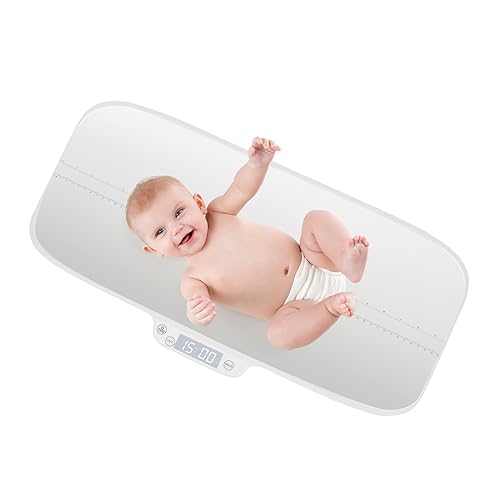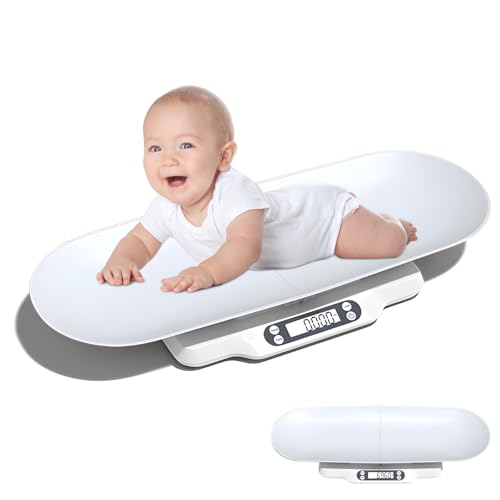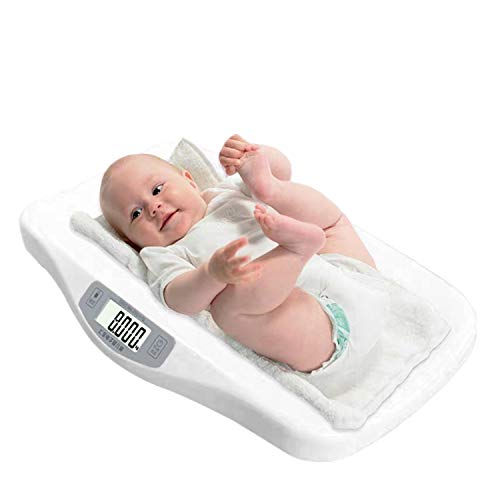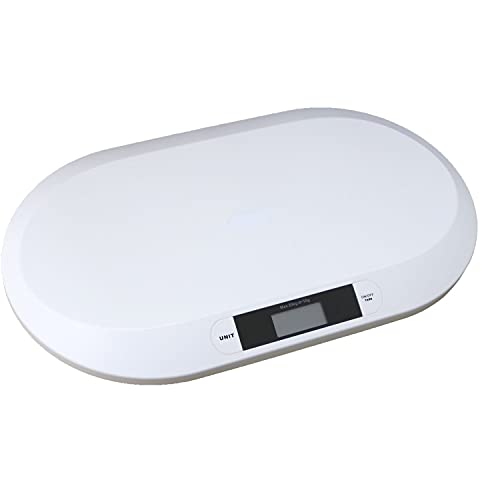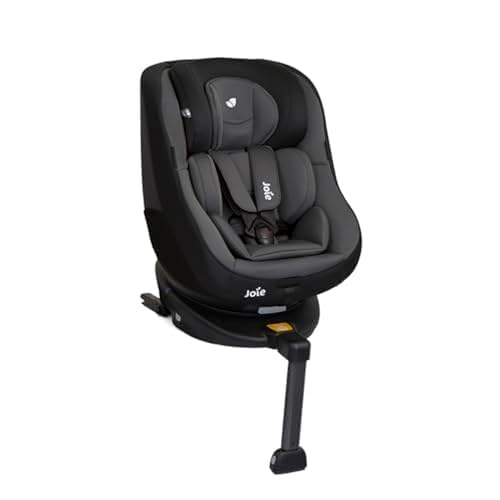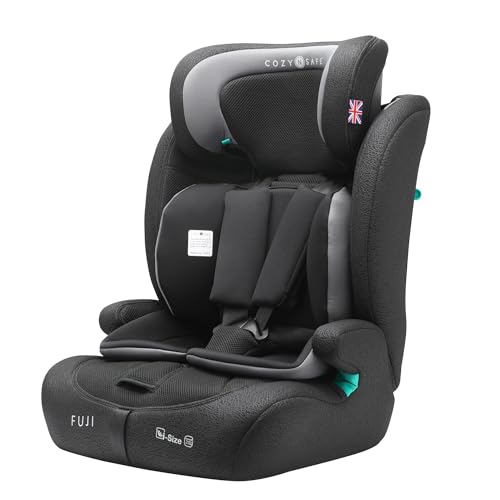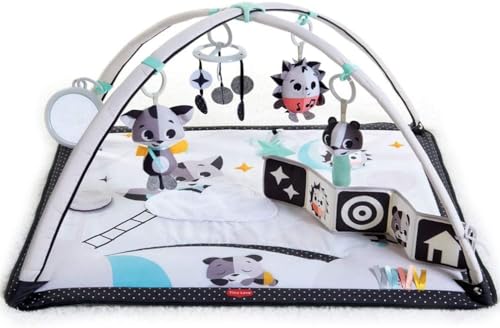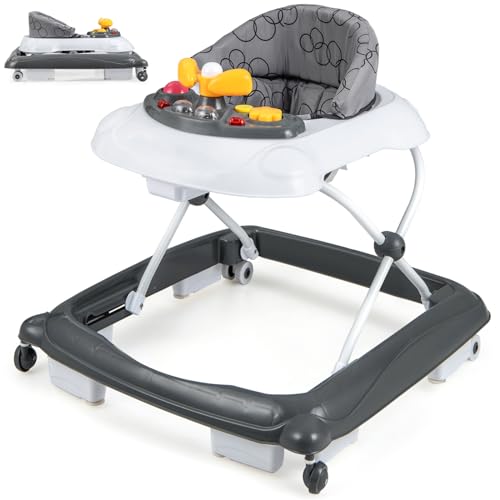What is an Infant Scale and Why Do We Need One?
Understanding Infant Scales
An infant scale is a specialized weighing device designed to measure the weight of babies and toddlers. Unlike regular household scales, these are calibrated to provide accurate readings for smaller weights, which is crucial for monitoring a child’s development. We need an infant scale to keep track of our little one’s weight during their early growth stages, ensuring they are on track with healthy growth patterns. Regular weight checks can help us identify any health concerns early, allowing us to act swiftly and consult a pediatrician if necessary.
The Importance of Monitoring Weight
Monitoring a baby’s weight is vital because it’s a key indicator of their overall health and nutritional wellbeing. During the first year, a baby’s weight changes rapidly, and keeping tabs on this growth can reassure us that our child is thriving. Whether we’re breastfeeding, bottle-feeding, or introducing solids, an infant scale helps us gauge how well the baby is feeding and growing, thus providing peace of mind for new parents.
Key Features to Look for in an Infant Scale
Accuracy and Precision
When selecting an infant scale, accuracy should be our top priority. Look for scales that provide precise measurements, as even a small discrepancy can affect our understanding of our baby’s growth. We should aim for a scale that weighs to the nearest gram or ounce, ensuring that we can confidently track our child’s weight.
Ease of Use
A user-friendly design is essential, especially for busy parents. We should consider scales that have large and clear displays, making it easy to read the weight without straining our eyes. Features like automatic shut-off help to conserve battery life, while intuitive controls ensure that we can operate the scale quickly and efficiently.
Portability
If we travel frequently or need to weigh our baby at different locations, a lightweight and portable infant scale might be the best choice. Compact designs that can easily fit into a bag or be moved from room to room can make weighing our baby more convenient. Some models even come with carry handles, enhancing their portability.
Infant-Friendly Design
The design should prioritise our baby’s comfort and safety. Look for scales with a flat, spacious platform to accommodate our little one comfortably. A soft surface or a cushioned mat can prevent discomfort and help keep the baby still during weighing, which is often a challenge with squirmy infants.
Weight Capacity and Unit Conversion
Consider the weight capacity of the scale, as our baby’s growth will eventually require a model that can accommodate a higher weight. Additionally, having the option to switch between metric (kilograms) and imperial (pounds) measurements enhances versatility and convenience, especially if we’re more accustomed to one system over the other.
How to Use an Infant Scale Correctly and Safely
Preparing for Weighing
Before weighing our infant, it’s advisable to ensure the scale is placed on a flat, stable surface for accurate readings. We should also ensure the scale is zeroed out before placing our baby on it, which means it should read zero with no weight on the platform.
Weighing Our Baby
When placing the baby on the scale, we should gently lay them on their back in the centre of the platform. It’s important to support their head and body, especially if they are very young. If the baby is fidgeting, using a soft toy or a light blanket can help keep them still during the weighing process. We should wait a few seconds for the scale to stabilise and then take note of the weight.
Ensuring Safety During Weighing
Safety is paramount when using an infant scale. Always keep one hand on the baby while reading the weight, especially with young infants, to prevent any accidental slips. We should avoid leaning over or reaching for objects while weighing, as our focus should be entirely on the baby at that moment.
Top 5 Recommended Infant Scales for New Parents
Our Top Picks
We recommend looking into several infant scales that cater to different needs. For instance, the XYZ model is praised for its accuracy and ease of use, while the ABC brand offers excellent portability for on-the-go measuring. The DEF scale includes a soft, padded platform for added comfort, making it a favourite among parents. Additionally, the GHI design stands out for its dual unit conversion feature, and the JKL scale is known for its sleek design and reliability. Each of these scales combines accuracy with user-friendly features, making them ideal choices for any new parent.
Frequently Asked Questions About Infant Scales
How often should I weigh my baby?
We typically recommend weighing your baby at least once a week during the first few months, as this is when growth rates are highest. Once they become more settled, you can weigh them monthly.
Do I need a special scale for my baby?
An ordinary household scale may not be suitable, as they lack the precision needed for infants. Investing in a dedicated infant scale helps ensure accuracy in tracking growth.
Can I use the scale for toddlers?
Many infant scales can also be used for toddlers until they reach about 20 kg to 25 kg, depending on the model’s weight capacity, making them versatile as your child grows.
What if my baby won’t stay still?
If your baby struggles to stay still, try using a light blanket or a favourite small toy to distract them. You might also want to wait until they are sleepy or calm to weigh them.







